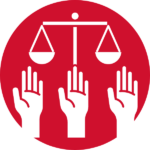Credit Unions offer most of the same financial services as banks. So what’s the difference?
We are guided by our eight core principles.

Voluntary & Open Membership
Anyone who shares a common bond — like an employer or community they live in — can choose to join a credit union that serves that field of membership.

Democratic Member Control
Credit union members are owners of the credit union and every member has an equal vote in the governance of the credit union, no matter how much money they have.

Member Economic Participation
Everyone who belongs to a credit union participates by making a deposit in the credit union. All members share in the ownership of the credit union, which is why credit union accounts are often called “share” accounts.

Education, Training & Information
Cooperatives are dedicated to educating their communities and giving them the resources needed to succeed. Early credit unions often had free libraries, and today many credit unions provide free financial education to their members.

Concern for Community
This is at the heart of what credit unions and cooperatives stand for. Everyone is invested in providing services their community needs, and volunteers for local community organizations.

Cooperation Among Cooperatives
Credit unions cooperate with each other and support other cooperatives — like food co-ops, or co-op companies.

Autonomy & Independence
Credit unions work to make sure members have access to the resources they need to be successful independently.

Diversity, Equity, and Inclusion
Credit unions are designed to serve the whole community. That includes making sure all ethnicities, genders, and sexual orientations are represented, in both credit union membership and employment.
Members not customers
Instead of customers, credit unions have members. To be a member of a credit union you must have something in common with the other members — like living or working in the same place. When you belong to a credit union, you are part-owner of that credit union.
Board members are volunteers
Unlike banks, where board members are paid for serving on the board, credit unions are guided by members of the community who volunteer their time to help the credit union and its members thrive.
No shareholders
Credit unions don’t have shareholders and aren’t trying to make a profit. Instead, credit unions are not-for-profit, pass through organizations that distribute profits back to members.
Download these resources for use in your credit union.
